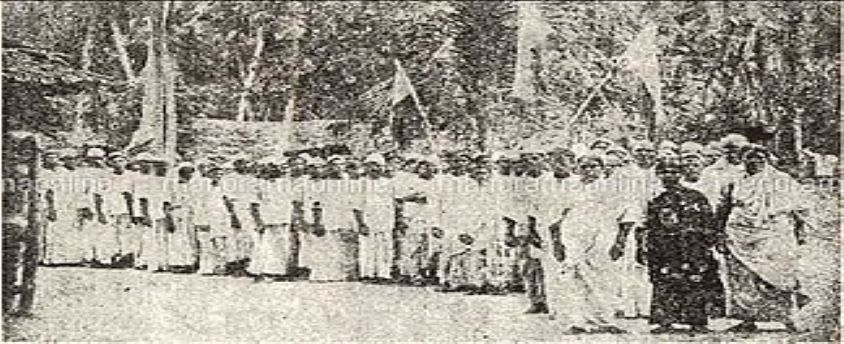Vaikom Satyagraha
31, Mar 2023

Prelims level : History in News
Mains level : GS-I Modern Indian history from about the middle of the eighteenth century until the present - significant events, personalities, issues.
Why in News?
- Precisely a century ago, Kerala’s Vaikom town which was then in the princely state of Travancore became the epicentre of a historic non-violent movement against untouchability and caste discrimination.
Background:
- Vaikom Satyagraha that lasted for 604 days (20 months) from March 30, 1924 to November 23, 1925 marked the dawn of temple entry movements across India.
- According to the prevalent caste system in Kerala and the rest of India, low-caste Hindus were not allowed to enter the temples.
- In the Kakinada meet of the Congress Party in 1923, T K Madhavan presented a report citing the discrimination that the depressed castes’ people were facing in Kerala.
- It was after this session that movements against untouchability needed to be promoted.
- In Kerala, a committee was formed comprising people of different castes to fight untouchability.
- The committee chaired by K Kelappan, comprised of T K Madhavan, Velayudha Menon, K Neelakantan Namboothiri and T R Krishnaswami Iyer.
- Other prominent figures included Kurur Neelakanthan Namboodiri and Mannathu Padmanabhan
- In February 1924, they decided to launch a ‘Kerala Paryatanam’ in order to get temple entry and also the right to use public roads for every Hindu irrespective of caste or creed.
About Vaikom:
- Vaikom is situated on the western side of Kottayam district in the Indian state of Kerala.
- It shares its border with Vembanad Lake.
- Its importance in Indian history is due to the Vaikom Satyagraha against untouchability, in which Mahatma Gandhi and Periyar Ramasamy participated.
Significance of the Vaikom Satyagraha:
- It became a first struggle for human rights in India
- It became a laboratory for testing important methods such as
- Instilled rationality among the masses.
Role of Periyar in Vaikom Satyagraha:
- The satyagraha began on March 30,1924 with the active support of the Kerala Pradesh Congress Committee(KPCC).
- The KPCC wrote to Periyar pleading with him to lead the satyagraha.
- As he was then the president of the Tamil Nadu Congress Committee, Periyar handed over temporary charge to Rajaji before reaching Vaikom on April 13, 1924.
- He was part of every consultative meeting, peace committee, campaign party, etc., including the eight-member deputation constituted to meet the Diwan.
- Every major personality who came to Vaikom met with Periyar, this included Swami Shraddhananda of the Arya Samaj,Rajaji met Periyar,Sree Narayana Guru and Gandhi.
Success of Vaikom Satyagraha:
- The satyagraha ended in partial victory in November 1925: three out of four streets were thrown open.
- Final victory came 11 years later with the Travancore Temple Entry Proclamation of 1936.






